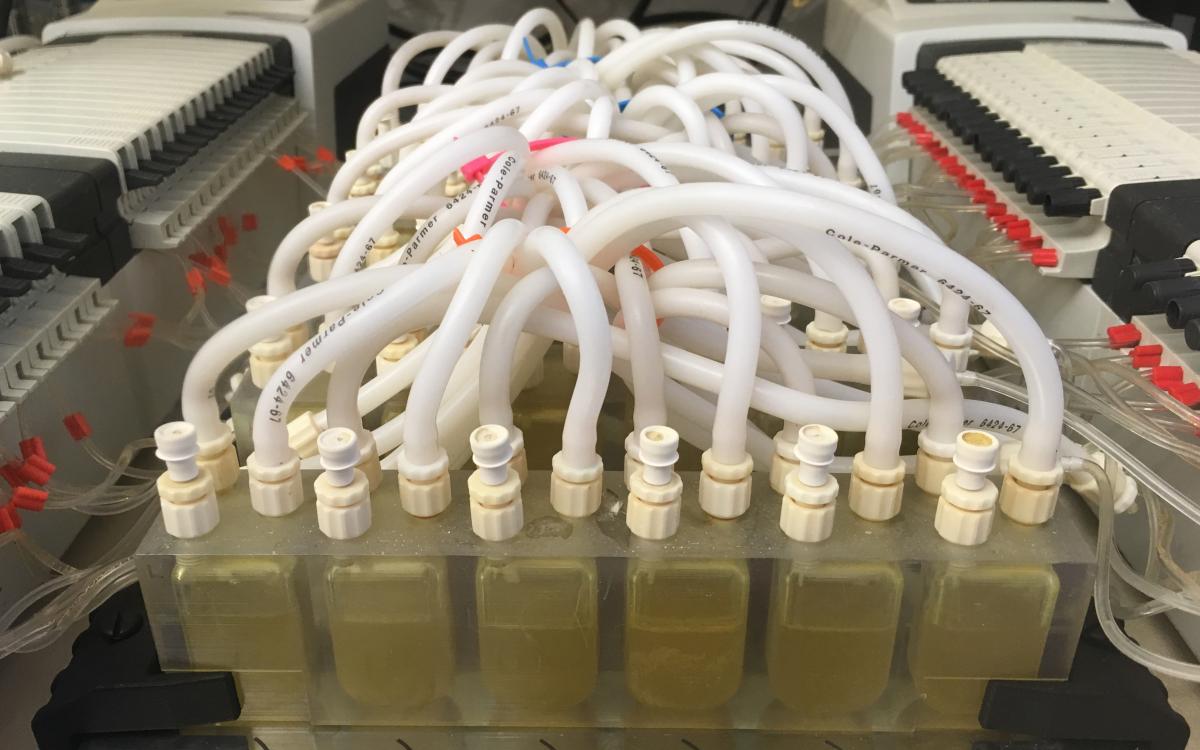Content
Our lab's research contributes to understanding of how microbial interactions influence microbiome function. Most of our research focuses on microbial interactions among human colonic microbes and their impacts on human health, although we are also interested in fermented food microbes and how they interact with each other and with the colonic microbiota.
Our work is highly collaborative, which allows us to pursue studies across three integrated research areas:
- Colonic microbiota assembly and interactions
- Colonic microbiota interactions with dietary bioactive compounds
- Microbiota interactions of fermented foods
See recent Publications and Preprints for insights into how we have been pursuing studies in these research areas.
One of the tools our lab uses to characterize microbial communities are minibioreactor arrays. Check out the MBRA Methods and Media page if you are interested in downloading files for 3D printing MBRAs or media recipes used to culture microbes.
